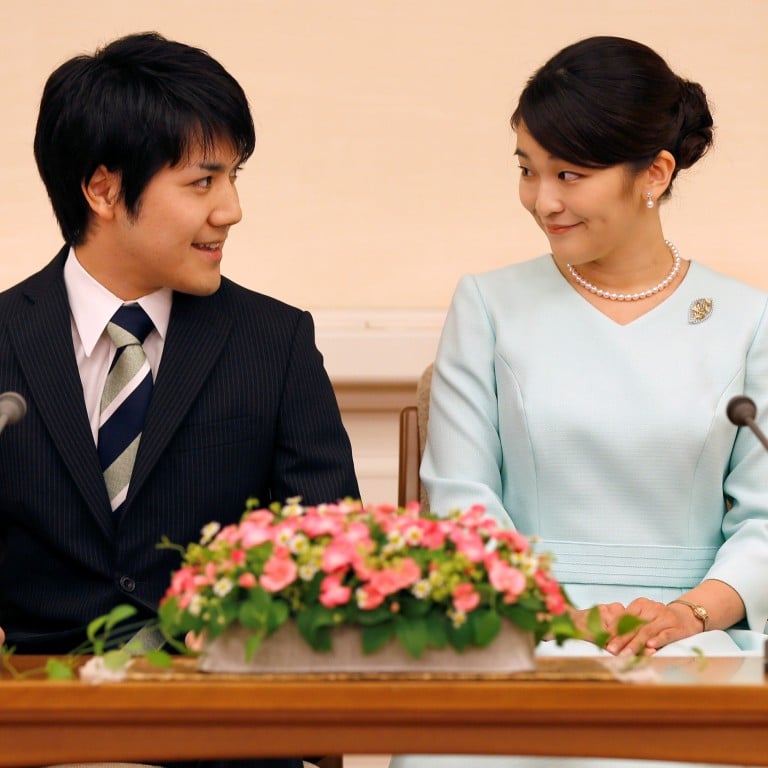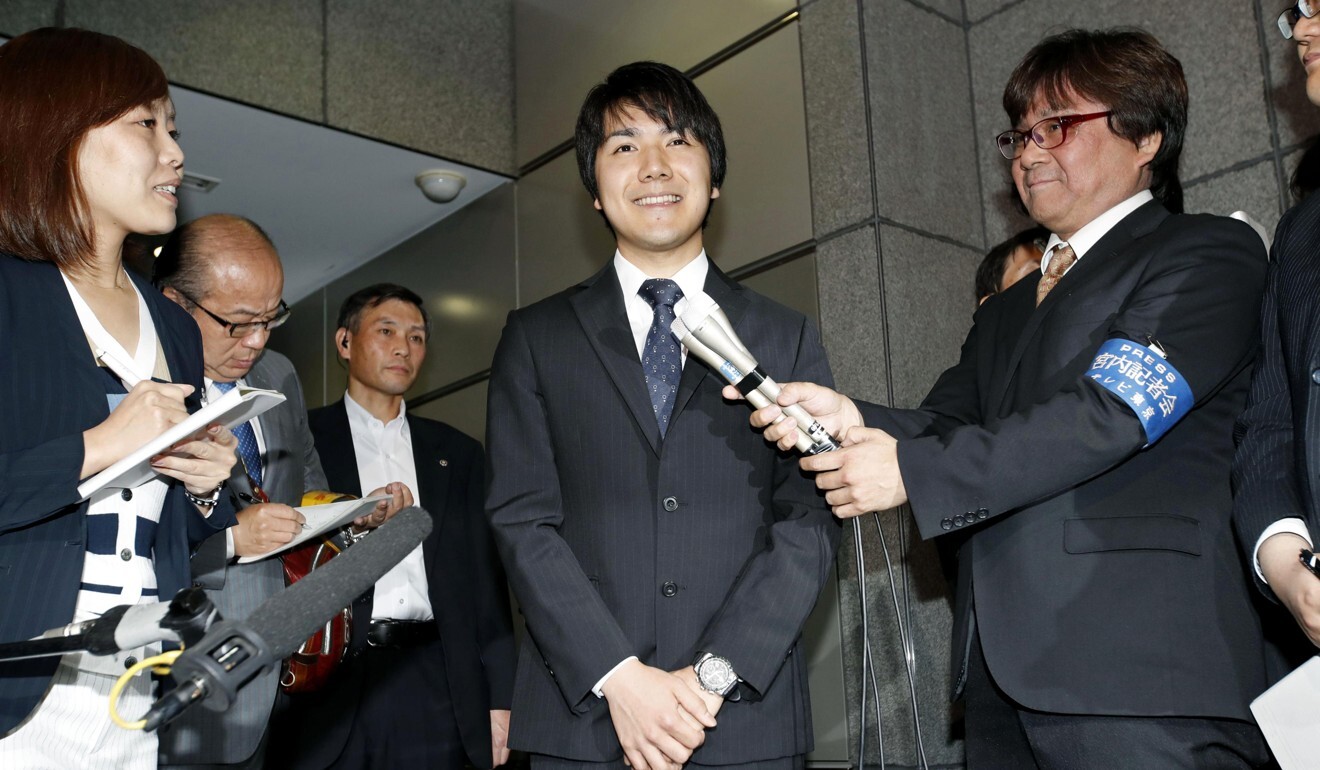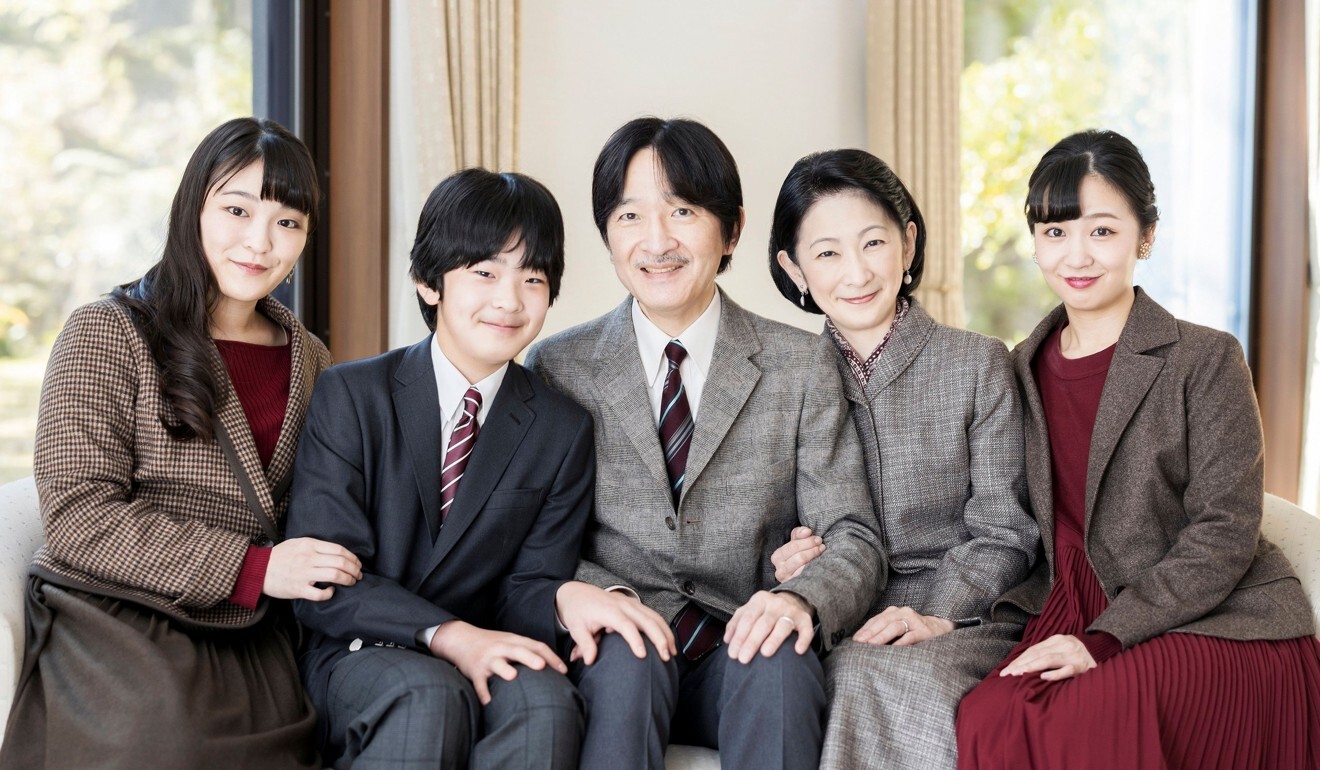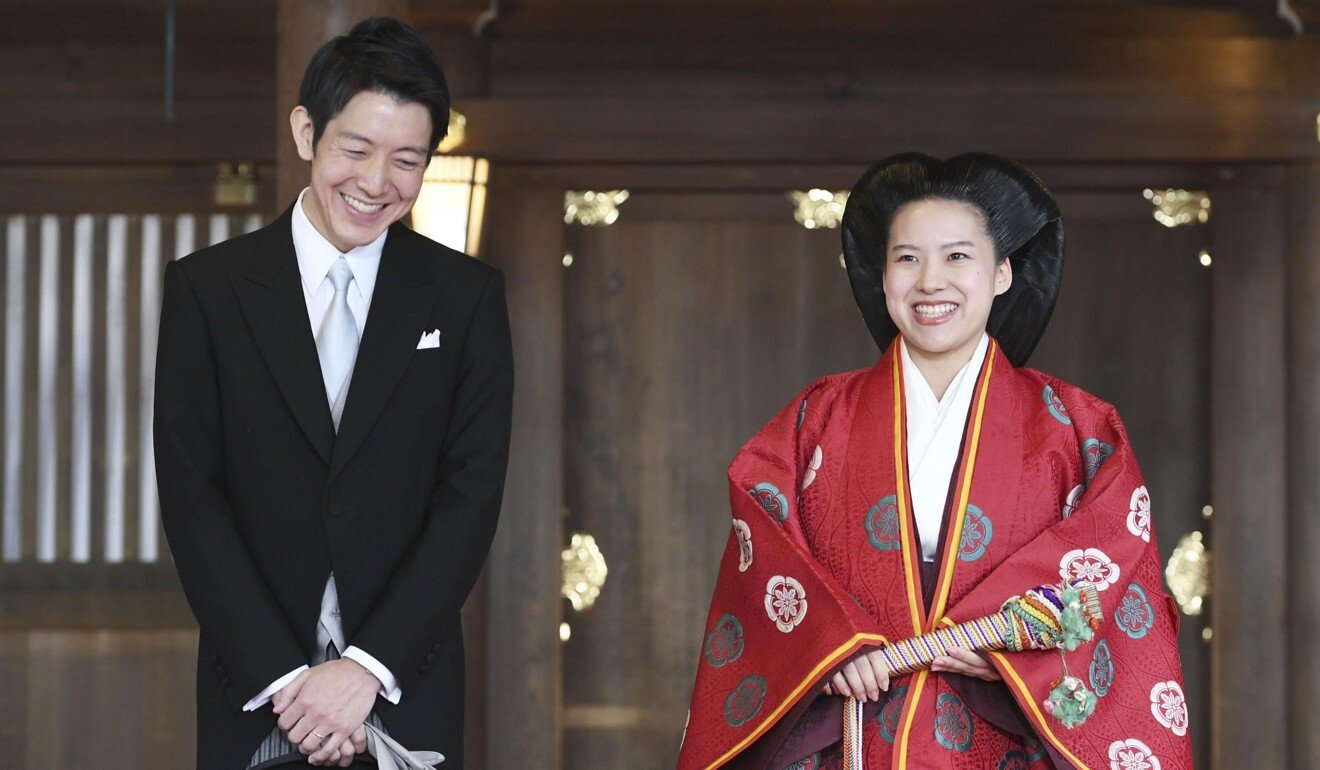
Japan’s Princess Mako’s bid to marry her college boyfriend spotlights realities of married life
- Money has become a concern in Princess Mako’s plan to marry commoner Kei Komuro, given a debt dispute involving his family
- The princess will get a payout to help maintain her ‘dignity’ after she loses her status from marrying a commoner, but some observers question if it’ll be enough
Cyber Okan, Japanese designer breaking all the kimono rules
But he mentioned an “issue” that still needed to be dealt with so that the public could be “convinced and pleased about their marriage”.
Komuro and the princess, both now 29, first announced their engagement in September 2018 with the intention of marrying the following year. The wedding has been delayed since February 2019, however, after reports emerged of a dispute between Komuro’s mother and her former boyfriend over 4 million yen (US$38,400) that he had loaned her, in part to cover her son’s university costs.

Komuro’s mother reportedly claimed the money was a gift and that she was under no obligation to repay it.
Prince Akishino and his wife, Princess Kiko, have met Komuro’s mother on a number of occasions and repeatedly insisted that they would not give their approval for their daughter’s wedding amid any suggestions of impropriety – though his initial outright opposition to the union appears to have softened of late.
Even if the financial issue is eventually resolved, however, another problem looms on the horizon for Princess Mako.
Under the laws that cover the imperial family’s finances, female members who lose their royal status through marriage are given a one-time, tax-free payment that aims to “provide financial resources to help a former royal maintain their dignity”.

But observers question whether the estimated 152.5 million yen (US$1.46 million) payment – though undoubtedly a lot of money for the average Japanese – will cover many of the expenses of a princess who has never had to ask the price of anything once the couple buys a home in one of the most expensive cities in the world.
“It is a lot of money to me, but I don’t think it is a huge amount in this day and age,” said Jun Okumura, an analyst at the Meiji Institute for Global Affairs and a former bureaucrat.
Ayako has reportedly settled into a life of suburban normality with her husband, who works for the Nippon Yusen shipping firm. She became a mother in November last year.

Other princesses to have married outside the imperial family over the past two decades include Princess Noriko, Ayako’s older sister, who married a senior official of an important of Shinto shrine in October 2014; and Princess Sayako, the present emperor’s youngest sister, who married an urban planner with the Tokyo Metropolitan Government in November 2005.
Although taxpayer-funded payments to ex-royals have come in for criticism in the past, the Imperial Household Agency has defended their use and surveys show most Japanese are in favour as they still hold the imperial family in high esteem.
Okumura said the one-off payment to Princess Mako “will be sufficient” for the new couple to “start a life together” – provided Komuro, who she met at university in Tokyo, completes his studies at Fordham University in New York and passes the bar exam, which he intends to take next year. Komuro worked briefly as a paralegal for a Tokyo law firm before moving to the United States to study, and was reportedly uncomfortable with the media spotlight.
“I wouldn’t be surprised if a number of US law firms with interests in Japan offer him a position, with an eye to drumming up business here in the future,” Okumura said. “I expect he would spend three or four years in New York and then perhaps return here.”
Why Japan has so many single people and sexless marriages
If her husband did decide to base himself in the US for an extended period of time, Okumura said it is highly likely that Mako would move there as well to revel in the relative anonymity of life away from the Japanese tabloids.
And while Komuro’s income will probably keep them comfortable whether the princess works or not, a question mark still hangs over who will pay for her security as a former royal.
Kidnap attempts have been made on estranged members of Japanese royalty before. An investigation into such a plot in the 1960s found that a criminal gang had targeted Princess Suga, the fifth and youngest daughter of Emperor Hirohito, three years after she surrendered her imperial title by marrying a commoner. The location of her marital home had been common knowledge, investigators found, while the US$500,000 payment she received upon departing the imperial family was worth much more at the time than it would be today.
Okumura said he did not expect financial concerns to be too much of a sticking point for the new couple, however.
“I think these things will pass and they will ultimately be treated kindly by the tabloids,” he said. “It’s hard to find anything to dislike about them as a couple and nobody wishes them any ill will.”

